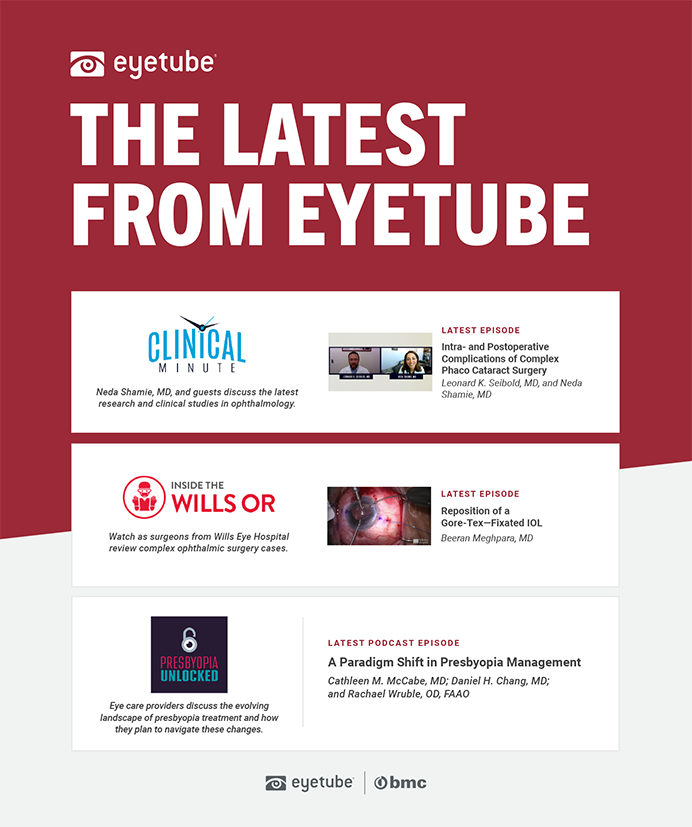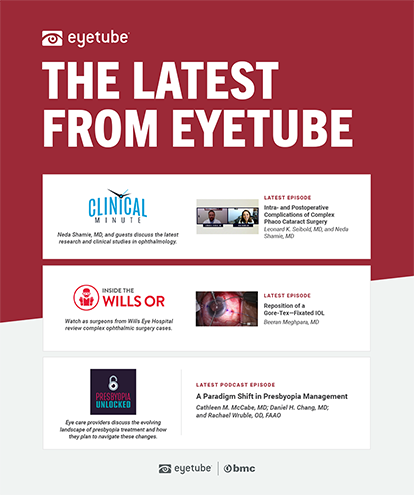Your abstract has been accepted to one of the most coveted conferences of the year. You pressed your suit and booked your travel, but what happens once you arrive?
Aside from presenting some of the amazing research you’ve been working on, conferences provide an almost overwhelming amount of opportunities for medical students to engage with the field. Ophthalmology, specifically, has so many aspects to it: the research, the people, the industry, and the networking events.
Let’s break down each of these aspects and explore how a medical student can make the most of their time at an ophthalmology meeting.
PARTICIPATE IN RESEARCH
This part is easy enough for medical students to navigate. Plan to present something you’ve been working on with your mentor, whether it be a poster, a paper, or an oral presentation. The flip side is to spend time looking at other research projects. This is a perfect opportunity to see what others in the field are working on, what new techniques are emerging, and what interesting cases are seen at other institutions. We may not be ophthalmologists yet, but keeping up with advances in the field is one of the easiest ways to stay engaged.
MEET LIKE-MINDED INDIVIDUALS
The people are my personal favorite part of conferences. Chances are, you will meet many different people at ophthalmology meetings. To make it easier, there are plenty of niche groups to explore: women ophthalmologists, Latino ophthalmologists, young ophthalmologists—the list goes on. Find and follow the groups that interest you. Attend their events, visit their booth, or sit in on their lecture or panel sessions. You could likely spend your entire conference staying busy with just one group. This is the easiest way to meet like-minded people in the field.
Extend this approach to the ophthalmic subspecialties as well. At bigger conferences such as the AAO annual meeting, the subspecialties break out into their own days with their own lectures. If any subspecialties are of particular interest to you, focus your time on events and sessions within that area and build your schedule around them.
ENGAGE WITH INDUSTRY
This aspect is unique to ophthalmology—at first, I didn’t know it was possible to be involved with industry as a medical student. However, the individuals who work in the ophthalmic industry are some of the most knowledgeable about the field. After all, they are helping to develop the technology that some of us are researching. These individuals are a wealth of knowledge; it would be a shame to not take the time to meet with them.
Visit different booths in the exhibit hall, talk to the people running them, and ask questions about their products. This inevitably leads to learning about a new technology, the condition it is designed to treat, how it is improving treatment, etc. You may even get to experience some of the new machines and tools, which is especially cool if you haven’t started your ophthalmology elective courses yet. An added fun part is that these booths usually offer free snacks and coffee (a necessity at any conference).
SOCIAL EVENTS
Plan to go to social events at meetings, even if you are tired from wearing uncomfortable shoes and talking all day. These engagements will allow you to see more of the personal side of physicians and industry members. At the end of the day, everyone—even the program director at your dream school—is human and likes to connect with others and have a good time.
CONCLUSION
Attending your first ophthalmology conference as a medical student may be overwhelming, but it also offers a prime opportunity to learn and connect with others in the field. Beyond presenting your work, you can learn about others’ research, experience the latest technology, engage with like-minded individuals, and build lasting relationships. With some advanced planning and some willingness to go outside your comfort zone, you can maximize your time and make the most of all an ophthalmology conference has to offer.





